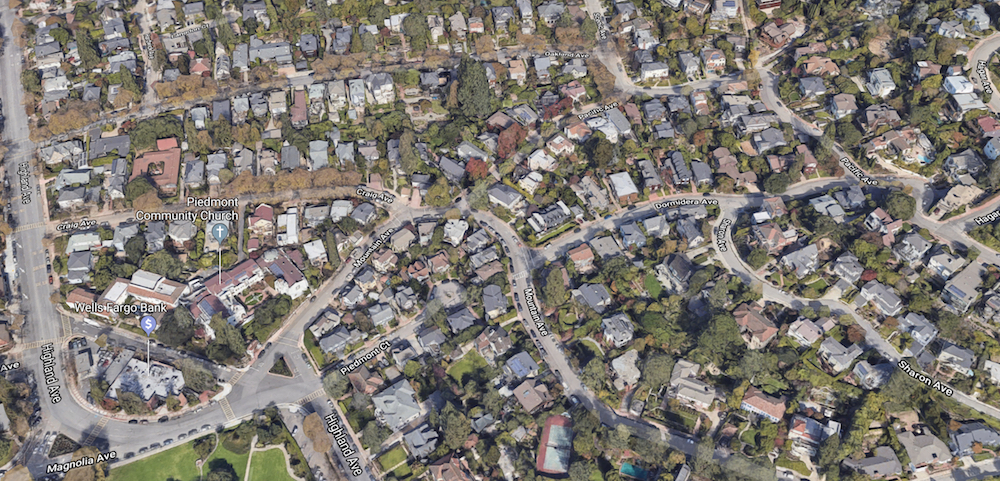The City of Piedmont has been awarded a $160,000 state grant to help with development of accessory dwelling units and for establishing design and zoning standards for apartments and condominiums.
The award was made Nov. 21, and is the maximum for a city of Piedmont’s size.
In an email, Piedmont Senior Planner Pierce Macdonald-Powell said that, since 2015, the city has issued 26 permits for new housing units, as required by a state-mandated Regional Housing Needs Assessment. Piedmont, Macdonald-Powell said, is supposed to have 60 such units planned for by the end of 2022, according to the needs assessment.
Specifically, the planning grant should help Piedmont find new incentives for rent-restricted accessory dwelling units, as well as new mixed-use multi-family developments. Providing incentives for such housing, Macdonald-Powell said, has been a challenge since 2016, when passage of two 2016 state laws, AB 2299 and SB 1069, resulted in Piedmont being prohibited from requiring parking for accessory dwelling units.
This change greatly limited the city’s ability to provide rent-restricted housing units for low- and very-low-income tenants as required under Piedmont Housing Element guidelines. The SB2 planning , Macdonald-Powell said, is intended to find new incentives for rent-restricted ADUs, as well as new mixed-use multi-family developments.
“While the City of Piedmont is making progress, it will face challenges meeting the annual rate of construction of new housing units at income levels anticipated by the Regional Housing Needs Assessment,” Macdonald-Powell said.
Whether those affordable units will be new structures or reworked existing ones is yet to be determined. Macdonald-Powell said both strategies will be reviewed and presented at public hearings of the Piedmont Planning Commission and City Council, as well as at resident workshops, in the coming months.
“Affordable,” in this context, is defined as 50 percent of a project’s housing units being for occupants earning 80 percent or less of Alameda County’s annual median income. That number in 2017 was $115,386.
In asking city staff in August to apply for this grant, Vice Mayor Teddy Gray King said that, by “working artfully,” Piedmont can both help meet regional needs in a Bay Area with an acute housing crunch, and still maintain its architectural character.
Reach Sam Richards at sam.richards4344@gmail.com
